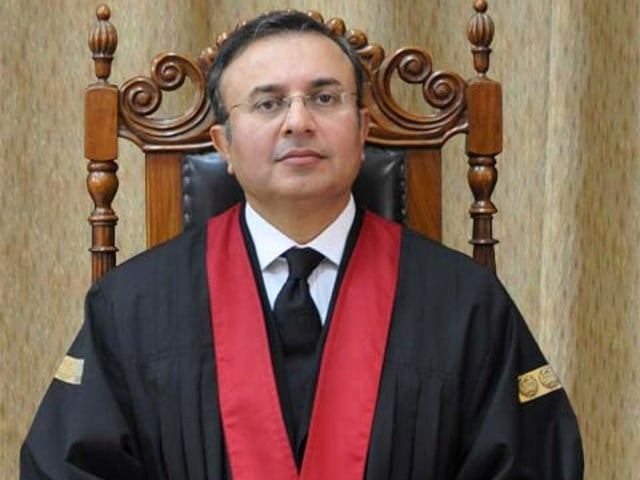Voters hold parties accountable: judge
SC asks whether court can direct govt on enacting law

Justice Mansoor Ali Shah of the Supreme Court remarked on Monday that if a political party made a wrong law the next government could change it when it came to power.
During hearing of a petition against the recent amendments to the National Accountability Ordinance (NAO), the judge said that in case a political party enacted wrong legislation, the people would not vote for it and that was the way how political parties were held accountable.
An apex court bench headed by Chief Justice Umar Ata Bandial and comprising Justice Ijazul Ahsan and Justice Shah, heard Pakistan Tehreek-e-Insaf (PTI) Chairman Imran Khan’s petition against amendments to the accountability law.
Justice Shah said that there were flaws in the laws, including those pertaining to sexual harassment. He asked whether the court could direct for legislation in accordance with the international conventions.
Even if the court gave the instructions, Justice Shah further asked, to what extent parliament would be bound by them. Imran’s lawyer Khawaja Haris replied that the court had issued instructions to parliament in many cases.
The chief justice said that corruption of private individuals was also mentioned in the international convention, adding that the private individuals might also be consultants, suppliers and contractors.
He pointed out that individuals as well as companies could also give false reports to the government. Haris replied that private individuals were also accused of corruption of Rs9 billion in the Bank of Punjab case.
Read Bars reject CJP's nominations for SC picks
Justice Shah inquired whether any other country had made anti-corruption law in accordance with the international conventions. Haris said that he had not reviewed the corruption laws of other countries.
Justice Shah said that Pakistan had anti-corruption law since 1947, and the international conventions were issued in 2003. Haris said that crimes listed in the international conventions had been included in the Pakistani law.
Sitting on the bench, Justice Ahsan inquired whether there was any provision under which mutual legal assistance would be acceptable. Haris said there was law regarding admissibility of evidence.
Justice said that before the amendments, the accountability law was fully compatible with the international conventions. The lawyer said now it was a weak law which would affect the country’s standing in the world.
The chief justice said that in the international conventions, the punishments for corruption had been left to the local laws. Justice Shah said that if parliament relaxed the law for economic improvement, what the court could do?
Justice Ahsan said that if there had been a debate in parliament, the flaws in the laws might have been pointed out. Justice Shah added that if Imran had not come out of parliament, there would have been a parliamentary debate.
Khawaja Haris said that PTI was present in the Senate, why was the amendment bill not discussed there. He added that the accountability laws had been made in such a way that the crime could not be proved.
Haris argued that fundamental rights of the people were involved in criminal cases but in corruption cases, only the public money was involved. He added that minimum standards had been taken from the international conventions.
The chief justice said that parliament was not bound by minimum standards. Later, the court adjourned the hearing till November 8.



















COMMENTS
Comments are moderated and generally will be posted if they are on-topic and not abusive.
For more information, please see our Comments FAQ